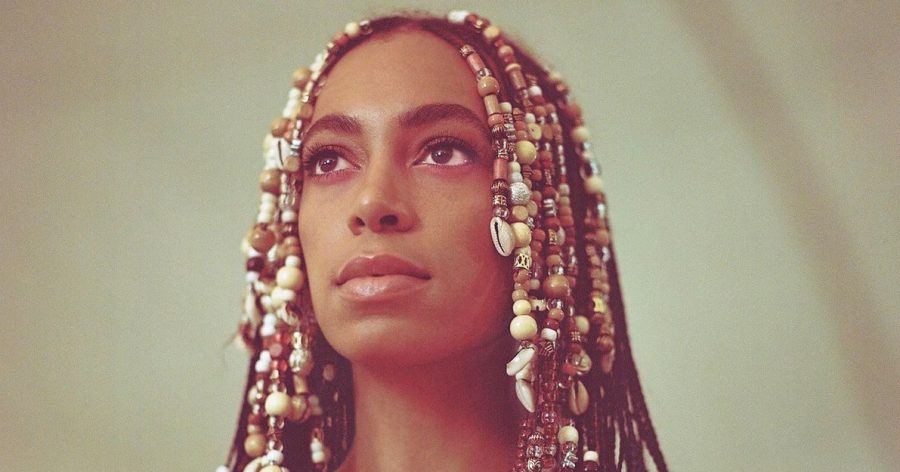Solange takes A Seat at the Table
March 23, 2017
On Sept. 30, Solange Knowles (stage name Solange) released her third studio album, A Seat at the Table. These 21 tracks were introduced to the public as “neo-soul” and the piece does more than deliver on that genre. Here are some thoughts on Solange’s latest masterwork.
First Impressions
The album title is gold. It suggests so much about Solange’s mindset and situation. For those of you living under a rock, Solange is the little sister of uber-famous pop performer Beyoncé.
Beyoncé’s unparalleled stardom offers her “a seat at the table,” a posture of influence, a membership in the club that decides what is culture.
Though Solange may get a seat at the table, Beyoncé is the conversation at the table.
This thought is reflected in Solange’s album title. She seems aware of the cultural undertones that perpetually rank her as #2, as Queen Bey’s plus one.
What is also interesting about this work is that Solange goes by only her first name, just like her sister. It’s like we are all observers of this musical family’s adventures. How unique that we are so familiar with them as staples of popular culture that they don’t even need a last name for us to know who they are.
Solange’s music is much smarter than Beyoncé’s, much smoother, much easier to digest. It doesn’t have any of those ludicrous vocal belting or four key changes in one song (see Beyonce’s “Love on Top”).
Favorite tracks
“Rise”
Great album starter. Strong jazz beat. The cymbals creep in seductively. In just over a minute and a half the listener gets a successful taste of the rest of the album: a jazzy, empowering storybook.
“Weary”
With a soothing tone, she sings, “I’m weary of the ways of the world.” It feels all too honest to any given current of disenchantment. It’s a relatable track. Certainly in 2016, We could all identify ways in which we are exhausted by the ways of the world. In a Destiny’s Child-esque register, she rejects idealization with her crooning, “that king is only a man, with flesh and bones, he bleeds just like you do.” The track could be about disillusionment with our monstrous political cycle or it could be about a toxic relationship.
“Don’t Touch my Hair” feat. Sampha”
Probably the most political track. This one is heavier on the electronic sound with a groovy bassline and loaded with celebration of black culture. Solange waves her finger at racial micro-aggressions like wanting to touch a black person’s hair with the lines: “Don’t touch my hair, when it’s the feelings I wear.” She and Sampha harmonize an alternative chorus that repeats “Whatcha say to me?” over and over to emphasize the outrage felt with such alienations.
Should I be listening? Yes if:
- You need contemplative music for a plane ride
- You are a fan of Lianne La Havas
- You want to be soothed by some smart lyrics
- You like empowering music charged with a social awareness
- You like music that finds strength in the avant-garde







